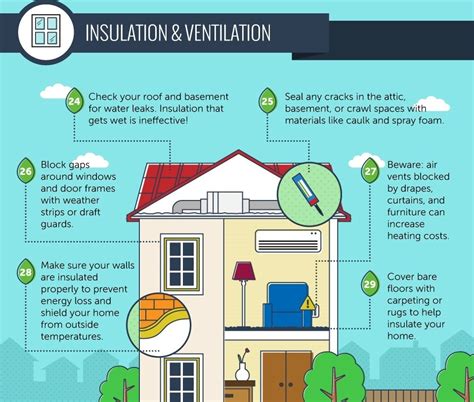As the world becomes increasingly conscious of the need to reduce energy consumption and mitigate the effects of climate change, the importance of insulation technology cannot be overstated. Insulation tech plays a vital role in reducing heat transfer between buildings and the outside environment, thereby minimizing energy losses and promoting energy efficiency. In this article, we will delve into the world of insulation technology and explore five ways it saves energy.

What is Insulation Technology?
Before we dive into the ways insulation tech saves energy, let's first understand what it entails. Insulation technology refers to the various materials and techniques used to reduce heat transfer between buildings and the outside environment. This can include materials like fiberglass, cellulose, and spray foam, as well as advanced technologies like radiant barrier insulation and vacuum insulation panels.
5 Ways Insulation Tech Saves Energy
1. Reduces Heat Loss in Winter
One of the most significant ways insulation tech saves energy is by reducing heat loss in winter. When a building is heated, the warmth can escape through walls, floors, and ceilings, leading to increased energy consumption. Insulation tech helps to minimize this heat loss by creating a barrier between the warm air inside the building and the cold air outside. This reduces the need for heating, which in turn saves energy.

2. Prevents Heat Gain in Summer
Insulation tech also saves energy by preventing heat gain in summer. When the sun beats down on a building, it can cause the temperature inside to rise, leading to increased energy consumption. Insulation tech helps to reflect the sun's rays and prevent heat from entering the building, reducing the need for air conditioning.
Types of Insulation for Summer
- Radiant barrier insulation
- Reflective insulation
- Fiberglass insulation

3. Minimizes Air Leaks
Air leaks are a significant source of energy loss in buildings. Insulation tech helps to minimize air leaks by sealing gaps and cracks in walls, floors, and ceilings. This reduces the amount of heated or cooled air that escapes, saving energy in the process.
Benefits of Minimizing Air Leaks
- Reduced energy consumption
- Improved indoor air quality
- Increased comfort

4. Enhances Ductwork Efficiency
Insulation tech can also enhance ductwork efficiency by reducing heat loss and gain in ducts. This is especially important in buildings with forced-air heating and cooling systems, where ducts can be prone to energy losses.
Benefits of Insulating Ducts
- Reduced energy consumption
- Improved system efficiency
- Increased comfort

5. Supports Renewable Energy Systems
Finally, insulation tech can support renewable energy systems by reducing the energy required to heat and cool buildings. This makes it easier to integrate renewable energy systems, such as solar and wind power, into building design.
Benefits of Insulation in Renewable Energy Systems
- Reduced energy consumption
- Increased system efficiency
- Environmental benefits

Conclusion
In conclusion, insulation tech plays a vital role in saving energy by reducing heat loss and gain, minimizing air leaks, enhancing ductwork efficiency, and supporting renewable energy systems. By understanding the benefits of insulation tech, we can take steps to reduce our energy consumption and promote a more sustainable future.
Gallery of Insulation Technology






FAQ
What is insulation technology?
+Insulation technology refers to the various materials and techniques used to reduce heat transfer between buildings and the outside environment.
What are the benefits of insulation tech?
+The benefits of insulation tech include reduced energy consumption, improved indoor air quality, and increased comfort.
What types of insulation are available?
+There are several types of insulation available, including fiberglass, cellulose, spray foam, and radiant barrier insulation.
